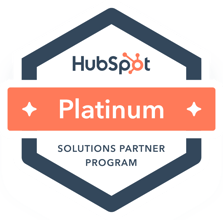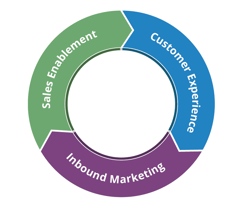To say that search engine optimization has come a long way since its advent in the 1990s would be an understatement. Back in the day, all those who entered the industry only had to concern themselves mostly with keyword research and inserting those keywords into every page of their websites.
Without fail, websites crammed with tons of keywords dominated search engine results pages, however, the quality of the content was lacking. As long as keywords were there, the relatively primitive bots of Google will give them a mostly undeserved position at the top of the Search Engine Results Pages (SERPs), while sites with useful and relevant content languish five or six pages deep.
If you were an SEO individual during its early years, then you know—and probably miss—how simpler life was back then. However, in its 20-odd years of existence, the SEO industry has seen a lot of changes. What used to work no longer does, and you can even get in trouble for trying it to see if it works. Let’s take a look at some of the things that have changed, and compare old SEO to SEO as we know it today.
1. From Black Hat to White Hat
Keyword stuffing used to be pretty in the early days of SEO, and for some reason, it worked for many websites. Today, keyword stuffing is categorized as a black hat SEO technique and is one of the many prevalent SEO practices in the past that can earn websites penalties from Google and other search engines.
With Google launching a series of updates to its algorithm in 2011, webmasters who have been dependent on black-hat techniques like keyword stuffing, duplicate content, spammy links, article spinning, and link buying saw themselves cut down to size. Panda, Penguin, and the rest of the major Google algorithm updates saw to it that black-hat techniques will no longer be the norm and that users will only get the most useful and relevant search results they can get.
2. The Focus on User Experience
In the past, the mindset of many SEO practitioners revolved around getting high rankings. Everything they did was to impress the search engines without much regard for content quality or relevance. In other words, old SEO never focused on making the user experience great.
Fast forward a couple of decades later, and user experience has become a significant search engine ranking factor. Google has made it clear that websites giving users the best experience they can provide have better chances of ranking high in the SERPs. That means SEOs are bound to ensure that, among other things, their sites have high-quality content and have a focus on long-tail keywords that serve a user’s intent better than singular keywords.
3. Smarter Users, Smarter Search Engines
Much of Google’s decision to put a premium on user experience revolves around the fact that users today have gotten a whole lot smarter when using search engines. They now know exactly what they’re looking for, and Google wants to give them the closest thing to what they need. Google has been working hard to make tweaks to its algorithms and processes to ensure optimal user experience, and that has led directly to a search engine that is light years smarter than the one many SEOs manipulated and gamed twenty or so years ago.
Just how smart are search engines today? Years ago, finding out the latest NCAA basketball scores required typing college basketball-related keywords, and you’ll probably get results that range from sites that define basketball to ones that talk about a team. You can consider yourself lucky if you actually got the scores you want to know. Today, you can type a search in the form of a question, and you will get the exact information you’re asking for right there on the search page, which you won’t even have to leave. Today’s search engines give you solutions, not just direct you to other sites.
4. The Rise of Voice Search
Who would have thought twenty years ago that we could all do searches without lifting a finger, quite literally? We now live in a world where smart speakers for use in voice searches such as Google Home and Amazon Echo/Alexa are dominating the marketplace. With voice search on the rise, SEOs are now optimizing for them too.
5. Responsiveness
Mobile Internet wasn’t even much of a thing when SEO started all those years ago. Now mobile users have long surpassed the number of desktop users, and mobile responsiveness has become a must for websites everywhere. With Google ranking websites based on their mobile versions via its Mobile-First Index, it has become even more imperative for webmasters to up their responsiveness levels, and for SEOs to improve on their optimization efforts for mobile.
6. Backlinks
Backlinks have always been a ranking factor since the beginning, and Google even encouraged websites to get as many incoming links as possible. Then unscrupulous webmasters started abusing the leeway Google gave by employing tactics such as using link farms and link buying.
It took some time before Google was able to address this issue, but when they finally made those significant algorithm changes, countless websites found themselves at the receiving end of penalties. They disappeared from the top of the SERPs because of their unnatural, low authority, or paid backlinks. With the algorithm changes, the mindset of SEOs these days has shifted from quantity to quality as far as backlinks are concerned. They now work hard to get only high-quality links from sites with high authority.
While the face of SEO has changed so much over the years, it hasn’t changed to the point where we don’t recognize it anymore. The key elements like link-building, keyword research, meta titles, and meta descriptions are still there. And with the renewed focus towards producing high-quality content and improving user experience, the days ahead are becoming even brighter not only for SEOs but for all search engine users as well.
If you're interested in implementing an SEO strategy or looking to improve your current SEO strategy, we invite you to schedule an inbound marketing consultation with our team. You can also check out our marketing explainer videos to learn a bit more about SEO.


.png?width=80&height=80&name=diamond-badge-color%20(1).png)





.png?width=250&name=diamond-badge-color%20(1).png)
